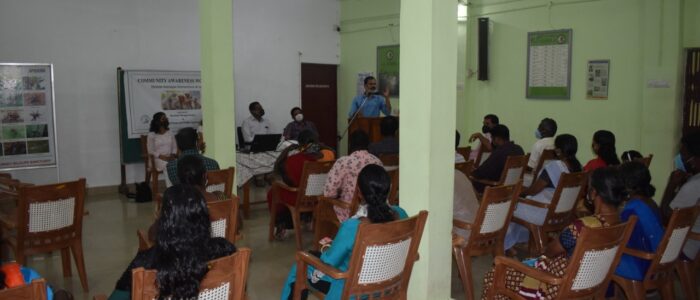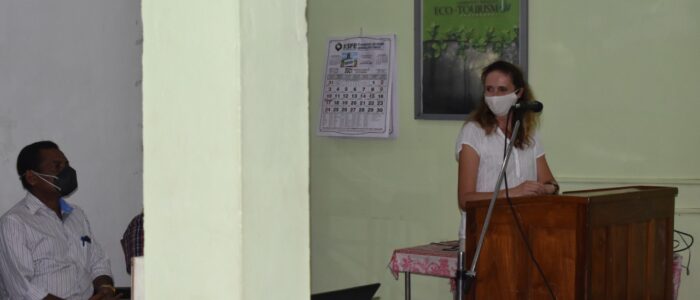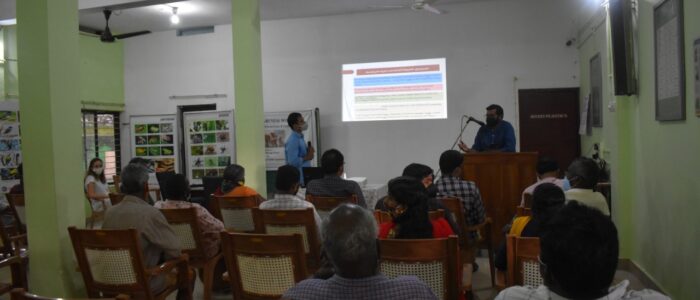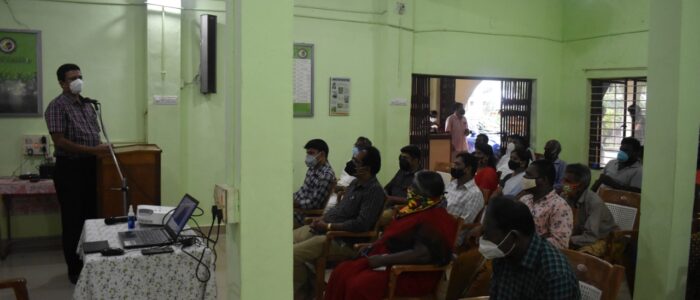- Personality traits in bonnet macaques
The purpose of our research was to identify the primary personality traits of bonnet macaques using an observer-based questionnaire and to assess the accuracy of this method in predicting behavior. Additionally, we examined the relationship between personality traits and variables such as sex, age, and rank. We rated 25 males and 38 females on 50 personality questionnaire items using a 7-point scale, with reliable ratings and good agreement among raters. Behavioral observations of 38 females over two-years were analyzed. Exploratory factor analysis revealed five traits: Friendliness, Aggression, Playfulness, Fearfulness, and Opportunism. Every trait correlated with a certain number of observed behaviors. Our results suggest that the questionnaire-based method is sufficiently valid as it confirmed high behavioral convergence with Fearfulness, Playfulness and Aggressiveness. Further studies are needed to understand the functional value of behaviors associated with Friendliness and Opportunism. Our study confirmed a tolerant social style of bonnet macaques, characterized by similar Aggression levels in both males and females, and lack of difference in Aggression level between subadult and adult males. Moreover, we identified a species-characteristic trait Opportunism which, unlike in other studied macaques, did not involve aggression-related characteristics.
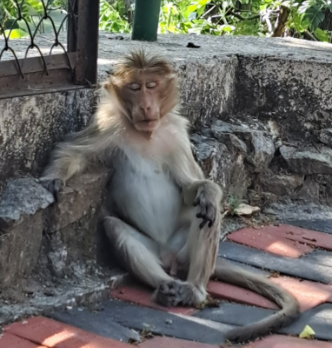
Arlet ME, Sakson-Obada O, Zakrzewska, Singh M (2024) Personality traits and their correlation with behavior in the bonnet macaque (Macaca radiata) in southern India. Scientific Reports 14, 31071
- Seminar by Prof. Mewa Singh
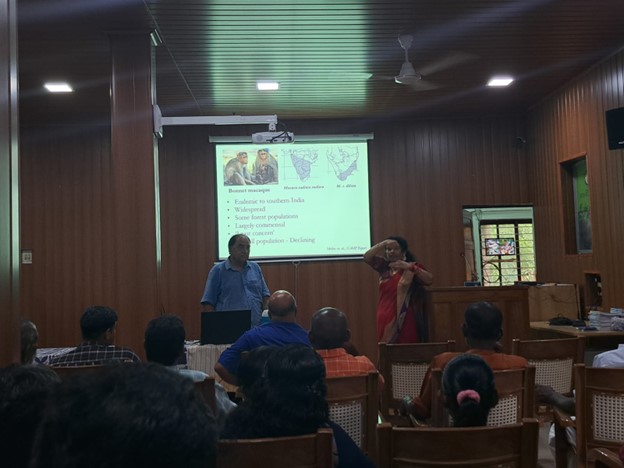
On September 10th, 2023, the Thenmala Macaque Project in collaboration with the Shendurney Wildlife Sanctuary organized a seminar at the Forest Information Centre of the Shendurney Wildlife Division in Thenmala. The aim of the seminar was to raise awareness amongst the locals in Thenmala on Primate Conservation in India. The talk was given by Prof. Mewa Singh from the University of Mysore.
The seminar was presided over by Ms. Sudha Gouri Lekshmi, Ecotourism Programme Officer, Shendurney Wildlife Sanctuary, Thenmala, staff and members of the Shendurney Wildlife Department, students of Prof. Mewa Singh along with our team led by Prof. Małgorzata Arlet (AMU, Poland).
Prof. Mewa, during his talk, discussed the rising problem of rapid decrease in green cover due to urbanization which has led to the loss of natural macaque habitat, leading to increased Human – Macaque conflicts. He spoke about the bonnet macaques having learnt to process anthropogenic food to suit their palate and how the macaques have started preferring human settlements due to the abundance of food resources available.
He also addressed the grievances of the locals regarding macaques entering their properties in search of food, which leads to increased human-macaque conflict and suggested possible solutions to avoid possible conflicts in the future.
We ended the seminar with the hope that the message of conserving macaques has reached the audience.
With the support of the forest department, our team plans to conduct more such sessions to spread awareness regarding the importance of conservation of macaques, while also striving to reduce human-macaque conflicts through constant educative interactions with the locals.
- Grieving behavior in female bonnet macaques

From 2020 – 2022, 18 female bonnet macaques lost 19 infants and three juveniles in the Dam and Eco groups in Thenmala. We documented the behaviour of these females before and after the death of their offspring and found interesting results. First, after the loss of their infants, females became socially withdrawn, had fewer neighbours around them, and were seen more often on the periphery of the group. Additionally, females did not groom or hug other individuals as much after suffering a loss. Instead, the results show that these females initiated aggressive behaviour more frequently and showed more stress related behaviours such as yawning and self scratching. In this paper, we suggest that female bonnet macaques react to deaths of their infants in a manner that is consistent with the interpretation of grief in humans and other primates.
Arlet, M.E., Anand, A., Saikia, A. et al. Behavior of Mothers after Infant Loss in Bonnet Macaques (Macaca radiata). Int J Primatol (2023).
https://doi.org/10.1007/s10764-023-00395-2
https://link.springer.com/article/10.1007/s10764-023-00395-2 - Adoption in bonnet macaques
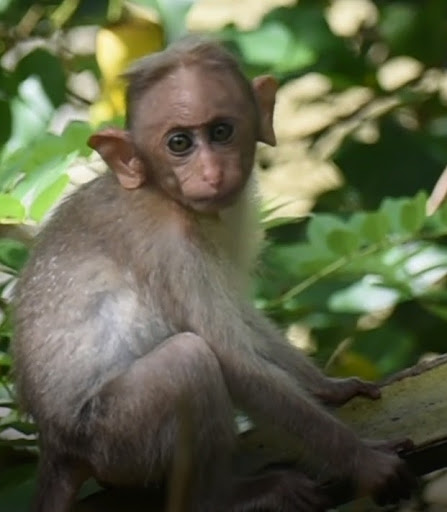
Between August – October 2021, five infant macaques in our study groups were orphaned, possibly as a result of human-macaque conflict. We observed different patterns of their caretaking and survival.
Interestingly, we found a correlation between the rank of the mother and the number of caregivers of the infant. The higher ranking a female, the more individuals participated in caring for her infant after her death. In this paper, we elaborate further on these infants being ‘adopted’ by other troop members.
Anand, A., Balakrishna, N., Singh, M. et al. Infant adoptions in wild bonnet macaques (Macaca radiata). Primates (2022). - Community awareness workshop on human-macaque interactions in Thenmala
Last weekend (October 23rd, 2021), the Thenmala Macaque Project organised a short awareness workshop in collaboration with the Shendurney Wildlife Division. It was held at the Forest Information Centre, Shendurney in Thenmala. The topic of the workshop was human-macaque interactions and conflict resolutions.
The aim of the meeting was to raise awareness among three local community members from the Ecotourism Development Committee. The workshop was presided over by B Sajeev Kumar, Wildlife Warden, C Ajayan, Assistant Wildlife Warden, Shendurney Wildlife Sanctuary, Santhosh, Junior Executive, Thenmala Ecotourism Authority, staff and members of Thenmala and Shendurney Wildlife Department along with our team led by Professor Małgorzata Arlet (AMU, Poland).
We discussed the current status of bonnet macaques, issues concerning human-macaque interactions in the area, and possible resolutions to avoid conflict.
In the near future, our team along with the support from the Forest Department plan to conduct more of such awareness programs for other communities that face human-macaque conflict.
